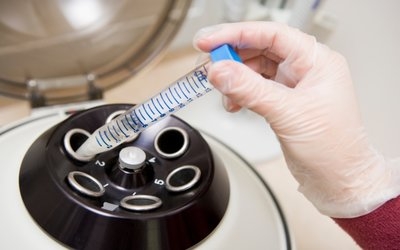Fertility is unsurprisingly a big topic as it determines whether we can reproduce as a species. In the past it was the case that as humans we would sometimes be limited in our ability to reproduce if there was something wrong with us in terms of the fertilisation process. It would be equally true that we had a limited amount of time in which we are generally able to reproduce – for women, as they get older it becomes more difficult and eventually impossible. For men, the sperm count drops with age and this only makes the situation more difficult. This has been a constant problem that has left many people disappointed when their efforts to have children have failed.
But as modern technology has only improved over the years it has become possible to apply it to the problems of fertility. There are many ways that scientists have attempted to counter the issue of fertility problems, one of which is the famous in vitro fertilisation – a process that takes the eggs and sperm from the couple that cannot conceive, fertilises them together and then places them either back into the woman or into a female surrogate. This process has become very popular as a way to overcome the crushing disappointment experienced by those couples that cannot conceive in the natural way.
But in vitro fertilisation is not the only way that science has been used to help out with this increasingly common problem. Another is known as egg freezing. But up until recently egg freezing was considered to be perhaps more controversial than in vitro fertilisation because it was still essentially an experimental technology. However, that all changed last October when the American Society for Reproductive Medicine announced that egg freezing should no longer be considered an experimental procedure – and this is big news, considering how recent the technology is.
The technology involves flash freezing eggs from women when they younger to then use later in their lives when they are ready to have children but their fertility has waned somewhat. But now that the perhaps worrying label of ‘experimental’ has been lifted from the treatment, does that mean that woman have been flocking to have their eggs frozen? Well it does not seem that this is the case just yet. Indeed, it still seems that not only women generally, but some fertility doctors still have some misgivings about the treatment and this is holding it back from joining the mainstream.
Some doctors are known to fear that if they go through with the process of freezing the eggs, it will change the lives of the women involved. That may be true but not necessarily in a bad way – having your eggs frozen actually essentially offers you the opportunity to live your life to a fuller extent for a longer period of time. So how exactly should you do this? Well there is actually a good system of best practice to follow.
For example, it is a good idea to freeze a number of eggs, perhaps around 30 in order to have a good chance that one will conceive. It currently thought that the success rate lies at around 35 per cent, so this gives you an idea of how many eggs you’ll need. Unfortunately the process is still rather expensive and costs many thousands of pounds to have you eggs frozen – and it will cost even more to have the rest of procedure conducted once you have made the decision to have children but if you’ve decided that this process is right for you then you might well decide the money is worth it!
